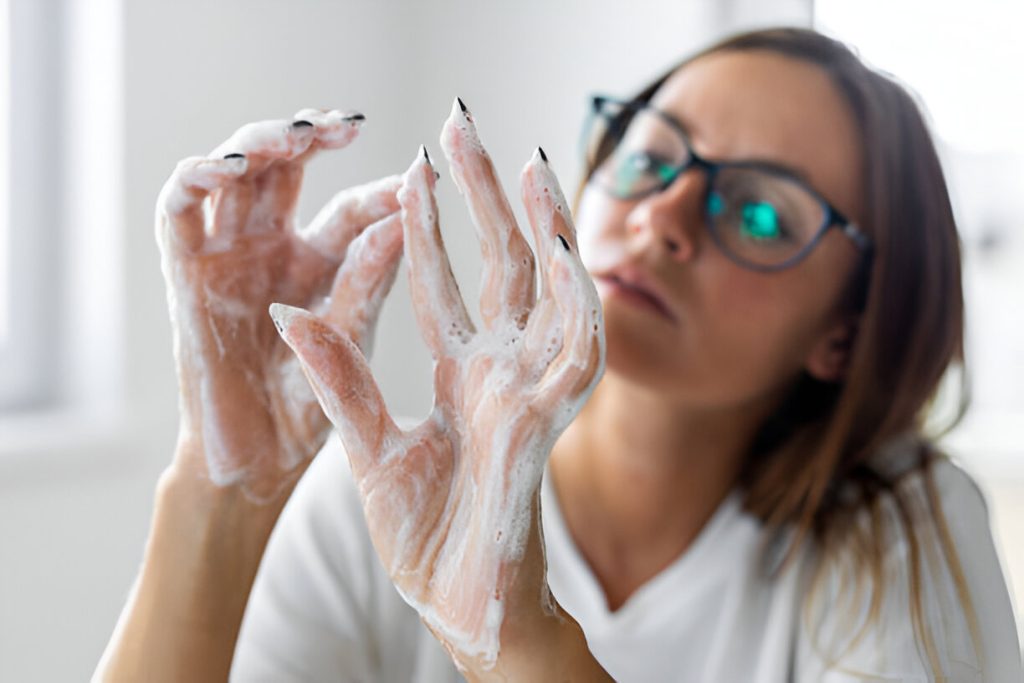Understanding OCD and the Path to Effective Treatment in Miami
Obsessive-Compulsive Disorder (OCD) creates an overwhelming experience that drives people to feel isolated, whether they are adults handling work and relationships or teenagers who need to fit in while handling school responsibilities. The OCD symptoms of intrusive thoughts and rituals, together with anxiety, create daily disruptions that most people fail to recognize. But there is hope.
Miami OCD treatment programs provide relief and long-term healing when patients receive appropriate support. The combination of evidence-based therapy and medication exists to provide customized solutions for adult and teenage patients. This blog examines OCD symptoms in real-life situations while discussing the importance of early intervention and describing practical therapeutic approaches and methods to locate empathetic, personalized care in Miami.
What Is OCD and How Does It Show Up in Daily Life?
Before learning about OCD treatment, we need to understand the everyday experience of OCD for people with this condition.
People with OCD experience unwanted thoughts known as obsessions, which trigger repetitive mental acts or physical compulsions to ease anxiety about potential harm. The National Institute of Mental Health reports that OCD affects people of all ages while disrupting their ability to work, attend school, and maintain relationships.
People with OCD commonly experience preoccupations about contamination alongside fears of self-harm and others’ harm and a fixation on maintaining perfect conditions. People with this condition perform compulsive behaviors, which include excessive cleaning, repeated checking of things, counting, and seeking reassurance.
Teens with OCD experience persistent handwashing and experience schoolwork problems because of their need for perfection while also avoiding others because of their fear of causing harm. Adults with OCD experience compulsive work-related checking and relationship problems because of intrusive thoughts, and parenting duties become difficult because of ritualistic behaviors. The core pattern of obsessive thoughts and compulsive behaviors persists across different themes.
The good news? You’re not alone—and you don’t have to manage OCD on your own.
Why Early Treatment Is So Important
We need to understand the importance of early intervention after learning about OCD symptoms. OCD symptoms tend to worsen if they remain untreated. The initial few coping behaviors tend to transform into extensive rituals that occupy multiple hours of each day.
The failure to treat OCD leads to worsening symptoms, which ultimately cause significant disruptions to daily functioning.
Early treatment of OCD leads to better outcomes in symptom reduction and daily life preservation.
Early intervention allows people to fight against compulsions during their early development stages, while therapy provides adults and teens with skills to handle anxiety and stress more healthily. The treatment seeks to eliminate the dangerous belief that people should overcome their issues independently. OCD requires medical treatment because it exists as a legitimate health condition that needs proper care, like any other physical illness.

Cognitive Behavioral Therapy (CBT) with Exposure and Response Prevention (ERP)
The gold standard in Miami OCD treatment programs is Cognitive Behavioral Therapy (CBT), specifically a method called Exposure and Response Prevention (ERP).
ERP is a process that helps people face situations or thoughts that gradually trigger their OCD while not giving in to the urge to perform compulsions. Gradually, the brain realizes these situations are not dangerous, and the anxiety naturally diminishes.
For instance, a person with contamination fears may touch “dirty” objects without washing their hands and learn that nothing bad happens as a result.
Therapy is often conducted weekly in either individual or group formats. To find specialized support tailored to your needs, explore options like individual psychotherapy in Miami.
Medication Options for OCD Treatment in Miami
For many people with OCD, therapy is a powerful first step. But when symptoms become overwhelming or don’t improve with therapy alone, adding medication can make a meaningful difference. At Improving Lives, we often work with clients who find that the right combination of medication and therapy brings more balance, freedom, and relief.
Selective Serotonin Reuptake Inhibitors (SSRIs)
The most common medications prescribed for OCD are Selective Serotonin Reuptake Inhibitors (SSRIs). These medications help increase serotonin levels in the brain—a chemical linked to mood regulation, anxiety control, and repetitive thought patterns.
SSRIs help reduce the intensity of intrusive thoughts and ease compulsive behaviors, making it easier for individuals to engage in therapy fully.
Here are some SSRIs frequently used for OCD:
- Fluoxetine (Prozac): Approved for OCD in both children and adults, often used due to its long half-life and broad tolerability.
- Sertraline (Zoloft): Popular due to its balance of effectiveness and lower side effects. Also approved for pediatric OCD.
- Fluvoxamine (Luvox): Specifically approved for OCD and considered highly effective, though sometimes more sedating.
- Paroxetine (Paxil): Effective for OCD but may be more difficult to tolerate due to side effects like weight gain or sedation.
- Escitalopram (Lexapro) & Citalopram (Celexa): Often used off-label when other SSRIs aren’t suitable.
Important note: SSRIs for OCD are usually prescribed at higher doses than for depression or generalized anxiety. This is normal and necessary—but it requires careful monitoring.
What to Expect When Starting Medication
- Time to effect: SSRIs don’t work overnight. Most people begin noticing benefits within 4–6 weeks, with full therapeutic effect often taking 10–12 weeks.
- Temporary side effects: Early on, it’s common to experience mild nausea, headache, or sleep changes, which often subside within the first few weeks.
- Communication is key: Let your provider know how you feel, especially if side effects are uncomfortable. Sometimes, adjusting the dose or switching medications is necessary.
Therapy continues to be essential—medication can help you access your calm, but treatment enables you to retrain your thoughts and behaviors.
What If SSRIs Aren’t Enough?
For some individuals, SSRIs alone don’t provide complete relief. In these cases, your provider may recommend augmentation strategies—essentially, combining your SSRI with another medication to increase its effectiveness.
These may include:
- Low-dose antipsychotic medications such as:
- Aripiprazole (Abilify) or
- Risperidone (Risperdal)
These aren’t used for psychosis in this case—they’re used to support serotonin pathways and improve OCD symptoms when SSRIs aren’t enough on their own.
- Glutamate-modulating agents: Some newer strategies include off-label use of medications like memantine or N-acetylcysteine (NAC), which may help reduce OCD-related brain hyperactivity.
Medication isn’t a “one-size-fits-all” solution. It’s about working closely with your care team to find what supports your unique brain chemistry and lifestyle.
Should I Be Nervous About Medication?
It’s totally natural to have mixed feelings about starting medication.
You might be asking:
- “Will this change who I am?”
- “What if I get dependent on it?”
- “Does this mean I’m not strong enough to do it on my own?”
Let us reassure you: taking medication isn’t a sign of weakness—it’s a sign of self-awareness and self-care. Many people feel like they’ve “gotten their lives back” after finding the right prescription. It’s not about numbing your emotions—it’s about making space for healing, reflection, and progress.
You Deserve Expert, Personalized Care
If you’re considering medication for OCD, the best path forward is one that’s thoughtful and collaborative.
At Improving Lives, our team includes skilled therapists and psychiatric providers who specialize in OCD and anxiety-related conditions. We’ll help you explore your options, answer your questions honestly, and work with you every step of the way.
You don’t have to figure this out alone—and you don’t have to stay stuck in the cycle of obsessions and compulsions.
Let us walk with you toward clarity, calm, and control.
Family Involvement
In teen OCD therapy in Miami, family involvement is often crucial. Teens may need help practicing ERP techniques at home, and family members can learn how to support recovery without enabling compulsions.
Even for adults, having a supportive partner or friend involved in the healing process can reinforce progress and reduce feelings of isolation. Family education helps create an environment that supports—not triggers—your recovery journey.
Online vs. In-Person OCD Therapy
Both online and in-person therapy can be effective for treating OCD. Online options offer convenience and flexibility, which can be especially useful for teens balancing school or adults juggling work and caregiving responsibilities.
On the other hand, in-person therapy may be preferred by those who value face-to-face interaction or need a more structured routine. Ultimately, the key is finding a provider with specialized training in OCD treatment, regardless of the format. If in-person support is what you’re looking for, consider an option like the Outpatient Program (IOP) at Improving Lives Now, which blends intensive care with daily life flexibility.
How OCD Treatment Differs for Adults and Teens
While the treatment methods may be similar, the way OCD shows up—and how it’s treated—can differ by age.
Teens: Navigating Identity, School, and Social Pressure
For teens, OCD often intersects with academic pressure, social comparison, and identity development. A teen may fear being judged by peers or struggle with obsessive thoughts about failing in school. Because teens are still developing emotionally, they often need more excellent structure and parental support during therapy. Family sessions are common in teen OCD therapy in Miami to help parents reinforce healthy boundaries and encourage consistent progress.
Adults: Managing Independence, Relationships, and Parenting
Adults develop OCD symptoms when they face career demands, romantic relationships, and child-rearing responsibilities. The treatment process offers more independence, yet people avoid seeking assistance. Adult therapy involves teaching ERP methods that adults can use to manage their compulsions both at work and in their relationships without feeling ashamed or secretive.
Every stage of life requires OCD treatment that addresses the person’s current situation. The treatment plan includes each person receiving unique evidence-based support.

What Progress Looks Like in OCD Treatment
Starting treatment is one thing—but what does progress look like?
Healing from OCD is rarely a straight line. There will be moments of genuine triumph—and days when it feels like nothing is working. That’s part of the process. ERP can be challenging at first, but individuals begin to see that they can tolerate discomfort and live fully over time.
Small wins—like skipping a compulsion for the first time or resisting the urge to seek reassurance—are significant victories. As treatment continues, people often report increased confidence, reduced anxiety, and a sense of control returning to their lives.
Progress doesn’t mean being completely free of intrusive thoughts—it means knowing how to respond to them in ways that no longer hold you hostage.
Take the First Step Toward Relief
If any part of this resonated with you or someone you love, know that support is just a call away.
Treatment for OCD can change your life—whether you’re a teen trying to navigate school without fear or an adult ready to reclaim your relationships and peace of mind. You don’t have to go through it alone, and you don’t need to have all the answers to start. What matters is taking the first step.
Reach out to the team at Improving Lives Now—we’re here to help you or your teen find relief and reclaim your life.
Frequently Ask Questions
How long does OCD therapy take?
Every case is unique. Some see improvement in a few months; others need ongoing support. What matters most is consistency and commitment.
Is medication required?
Not always. Many benefit from ERP alone, but for moderate to severe OCD, medication for OCD treatment in Miami can be a helpful addition.
Can I get treatment if I’m in school or working full-time?
Absolutely. Programs like the Partial Hospitalization Program (PHP) offer structured daytime support, while outpatient therapy can be scheduled around your availability.
Do you offer virtual therapy?
Yes, both online and in-person sessions are available to ensure everyone can access care in the format that works best for them.
Is therapy confidential?
Yes. Your privacy is always protected. Teens may have shared sessions with parents when helpful, but personal information is treated with respect and sensitivity.
